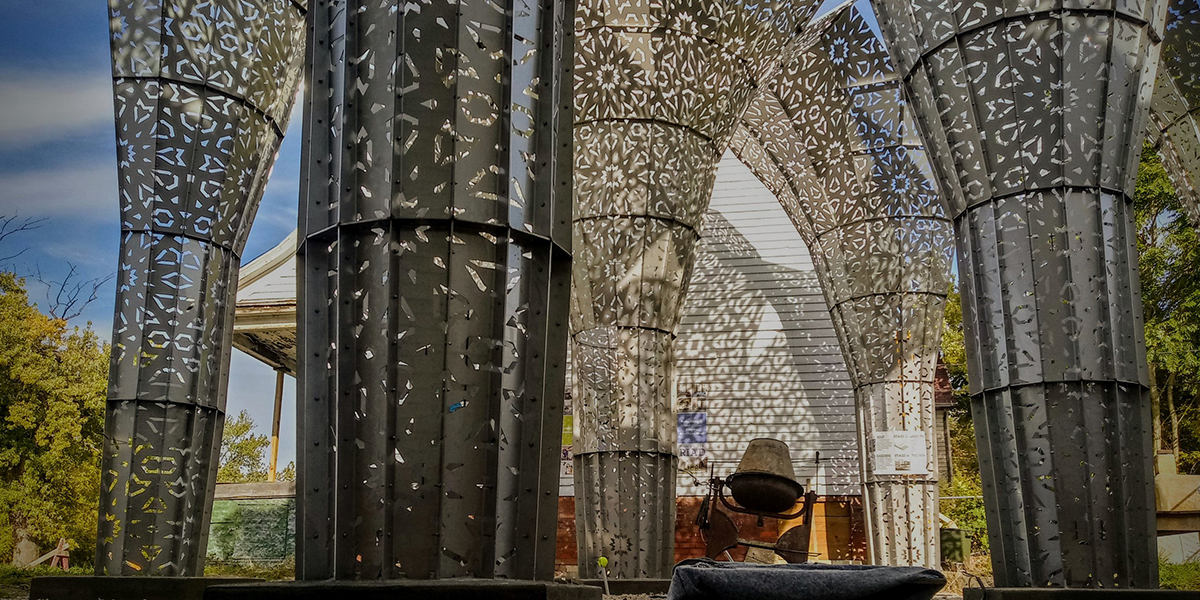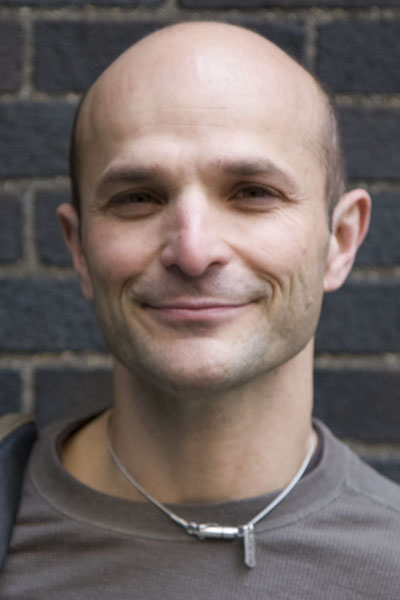Provost announces founding director of School of the Arts
Christopher Robbins comes from Purchase College, SUNY to lead new school

Binghamton University Executive Vice President for Academic Affairs and Provost Donald Hall is pleased to announce that Christopher Robbins has been appointed the founding director of the new School of the Arts. He will begin his duties this summer.
Robbins, whose work spans several fields including sculpture and public art, is currently director of the School of Art+Design at Purchase College, SUNY, where he oversees educational, budgetary and administrative affairs.
“Our new School of the Arts needs a founding director with a vision for the arts of the future, and who can create a synergy among the arts at Binghamton to realize that vision,” said Hall. “Christopher has the experience we were looking for and a clear understanding of what we want to accomplish at Binghamton as we bolster our support of the arts and establish new creative paths for our students.”
“Christopher Robbins was impressive throughout the entire search process,” Harpur College Dean Celia Klin said. “As we move forward with our new School of the Arts and a major renovation of the Fine Arts Building, we will rely on his abilities to develop further collaborations across the arts and other schools at Binghamton that will take our arts programs into the future.”
Robbins received bachelor’s degrees in psychology and Asian studies from the University of Virginia, a Collegiate Teaching Certificate from Brown University and an MFA in digital+media from the Rhode Island School of Design. He also attended Tokyo International University in Japan and the Pratt Institute. He has taught at Purchase College, SUNY, since 2010, and prior to that at the Rhode Island School of Design and the University of the South Pacific - Fiji.
He has extensive experience working in nonprofit organizations, including developing a residential land trust in Detroit that uses art to fight gentrification; serving in the U.S. Peace Corps in Benin, West Africa; and as co-founder and U.S. managing member of the Ghana ThinkTank, an international artist collective known for its unconventional approach to negotiating social conflicts. His work continues to cross disciplines and cultures to bring together art, architecture and urban design to benefit cities and neighborhoods.
“I am truly honored to lead the new School of the Arts at Binghamton University,” Robbins said. “The arts have the power to break down barriers and bring together people from diverse backgrounds, fields and industries. As we collaborate, we can leverage the transformational power of the arts across the broad and deep capacity of Binghamton University, to spark meaningful connections and inspire new ways of thinking. I am excited to bring my experience working in the arts across several continents and industries to Binghamton.”
About the School of the Arts
The new School of the Arts at Binghamton University resides within Harpur College, and brings together the departments of Art and Design, Art History, Cinema, Music and Theatre.
“We’re at a time when we have a lot of strength in the arts,” said Celia Klin, Harpur College dean. “We’ve hired some fantastic people and more than ever we’re seeing collaboration across the disciplines, so we’re building from a place of strength, we’re functioning well, and we’re attractive to students looking for a strong arts curriculum. We are building on that.”
But there’s more, she said. “The most general answer about why we are building in the arts is that we’ve been aware for a number of years that Harpur is growing unevenly because of the demand from students in disciplines such as economics and the STEM fields, leading us to keep hiring in the places where there is student demand for classes,” she said. “But when I talk to alumni from the 1960s and ’70s, I’m reminded that our roots are in a broad education in the liberal arts. I believe in the importance of both depth and breadth of the liberal arts, so I worry sometimes that we will lose the shape of what has made Harpur really special — depth including an education in the humanities and the arts. So we want to make sure we build in a way that is deliberate, including the arts.”
A final piece of the puzzle for Klin comes from her personal experience having a daughter who is a musician. “When she was in high school, many of her friends were interested in the arts and I became aware that there was a need for a public university in New York — a SUNY that provides in-state, accessible tuition, that is both rigorous academically and has strength in the arts,” she said. “Although there are excellent conservatory style colleges in New York state, there is the need for a broad arts education in a public university with excellent academic programs.”
Klin sees the new school as being more of what it already is, with the opportunity to create new tracks, majors and minors that cross disciplines. “I can imagine some students wanting more training across the arts and I think we can formalize some of that by using what already exists, but adding some tracks,” she said. ‘We will be responsive to what the arts careers look like in 2023.”
New programs will be up to the faculty and director and will include MFA programs as well, Klin said. She envisions collaborations stretching beyond the arts and Harpur College. “I can see possibilities for creative programming in creative writing, but also with the School of Management for arts management, perhaps, more collaboration with the Anderson Center for training behind the scenes,” she said. “Similarly, we already have collaborations with Watson College in graphic design, but we could work with the College of Community and Public Affairs in their Community Schools Program placing students in the local schools to enhance arts programs. It would be great for the community and for our students.”
The new school has Faculty Senate approval, which is all it requires as a reorganization. Next steps include finalizing a master plan for renovation of the Fine Arts Building.
“We are getting very close to having a finalized master plan,” Klin said. “A draft will be reviewed by the departments and our new director in the next few weeks to gather input. We want to create a building that’s going to be the building we need in 10 and 20 years. We don’t want to make the design decisions without thinking deeply about the future of the arts.”
Finally, Klin said Harpur College is in the process of a cluster hire for fall 2023 of eight tenure-track faculty in arts and performance for the 21st century. “We’re seeing really strong applicant pools,” she said.

